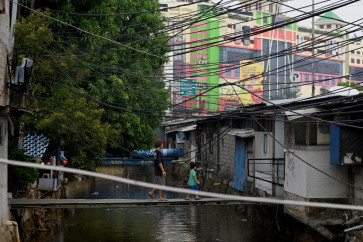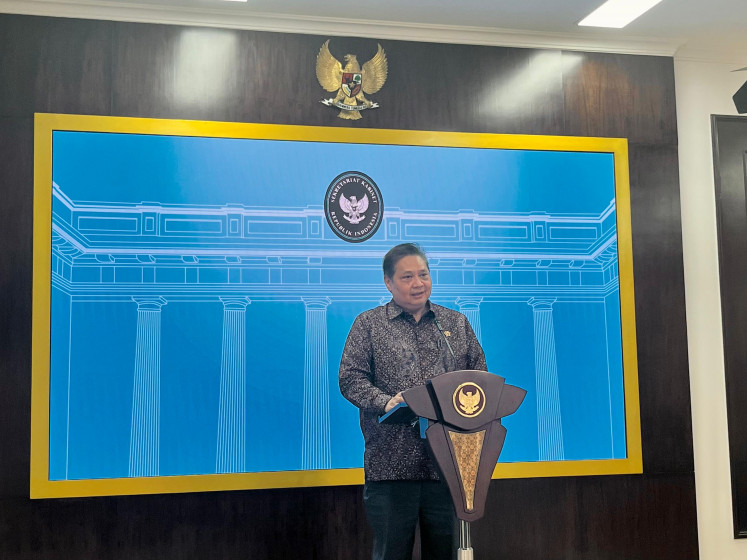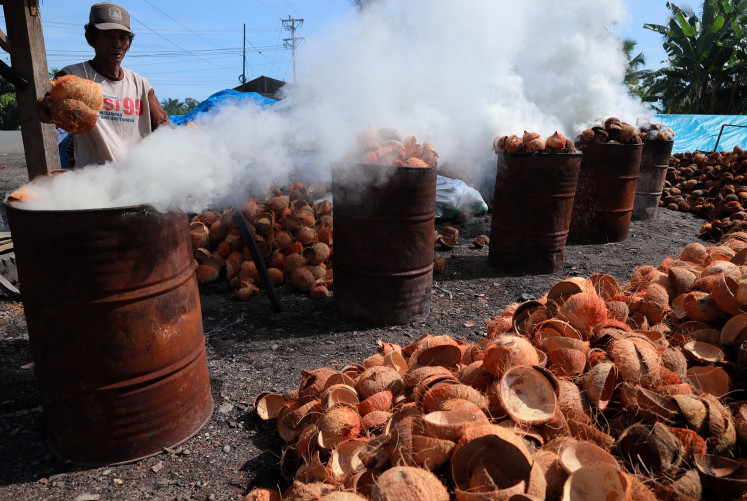Getting the measure of press freedom
Press freedom helps to fortify democracy and good governance in a country
Change text size
Gift Premium Articles
to Anyone

P
ress freedom helps to fortify democracy and good governance in a country. How do you measure press freedom? What indicators do you use? Discussions on measuring press freedom will come up on National Press Day on Feb. 9, observed in Manado, the capital of North Sulawesi.
The Paris-based Reporters Without Borders, better known by its French initials RSF, and Freedom House in Washington, are two organizations that publish annual worldwide press freedom indexes.
For its World Press Freedom Index, RSF prepares a lengthy questionnaire. It lists 74 questions and additional sub-questions in six core criteria: pluralism, media independence, environment and self censorship, legislative framework, transparency, and infrastructure. Journalists, researchers, human rights activists and 150 RSF correspondents worldwide answer the questionnaire.
Sample questions are: do privately owned print and TV networks exist? Are there any kinds of limits from owners or governments? The index also attempts to show restrictions on the free flow of information on the Internet.
RSF uses a logarithmic formula applying a weighting system to give a country score. The score ranges from 0 — 100 with 0 the best possible score on the state of press freedom and 100 the worst.
Outside the questionnaire, RSF staff also assess the level of violence against journalists. The violence score with a given weight of 20 percent is factored into the score of six criteria for the final score. The outcome is a ranking of 179 countries.
Meanwhile, Freedom House does not use a globally distributed questionnaire as its main tool. It uses input from its own travel, professional contacts and the findings of human rights and press freedom organizations.
To assess press freedom levels in a given country, Freedom House uses 23 methodology questions and 109 indicators in three categories: the legal environment, the political environment and the economic environment.
Specimen questions are: Is there implicit impunity for those who commit crimes against journalists? Is there government control of state-run media outlets? For each methodology question, the lower number of points, the freer the situation.
A score of 0 to 30 places the country in the free press group, 31 to 60 in the partly free press group and 61 to 100 in the not free press group.
In RSF’s 2013 World Press Freedom Index (covering events from Dec. 1, 2011 to Nov. 30, 2012), Finland tops the world ranking with a 6.38 score, followed by the Netherlands and Norway. Among ASEAN countries the top three are Brunei (world rank 122, score 35.35), Thailand (135, 38.6), and Indonesia (139, 41.05). Indonesia surged seven places from 2012. Timor Leste, which seceded from Indonesia in 1999, fared better at 90.
Freedom House has not released its 2013 index. However, in its 2012 index (covering events from Jan. 1 to Dec. 31, 2011), for Asia and the Pacific, Freedom House places Palau, an island southeast of the Philippines, on top with a score of 16, followed by New Zealand.
No ASEAN country scored below 30 for a “free” press status. Three ASEAN member states are classified as “partly free”, with the Philippines ranked 21 with a rating of 42, Indonesia (22, 49) and Thailand (28, 60). Timor Leste scored better with 35 for the 18th place.
Indonesian media organizations are developing a nationwide press freedom measuring tool. Under the auspices of the independent Press Council, journalism schools such as in the University of Indonesia and Dr. Soetomo Press Institute (LPDS), and professional organizations like the Association of Independent Journalists (AJI), the Indonesian Journalist Association (PWI) and the Press Legal Aid Institute (LBH Pers) are jointly drafting an instrument for a press freedom index.
Still a work in progress, the tool is a two-part questionnaire. Part I covers nine questions under the heading “Internal Threats”. Part II has seven questions on “External Threats”. The questionnaire directs concern at possible restrictions from within a media outlet, meaning the owners and management.
In part one, several questions reflect the reality that a number of media owners have a political agenda in the upcoming 2014 general election. Some of the questions as are follows: Do journalists get an assignment that potentially violates the journalism code of ethics? Must a journalist’s political partiality be in line with the political interest of the owner/management of the media outlet? Is self-censorship ordered by the owner/management of the media outlet?
Meanwhile, a sample part two question is as follows: Is there a legal process starting from the police, the prosecutor and the judiciary that impedes journalists in exercising their journalistic duty?
All the questions require a yes or no answer. A yes reply gets one point and a no scores zero. A score of zero to two earns a “very good” press freedom status. A score of 13-16 gets a “very bad” press freedom grade.
Reworking still needs to happen on the scope and wording of the questions, a weighting system, identifying the respondents and the evaluators. One point agreed is that the evaluating team must be independent and professional. When the questionnaire is finalized, it will indicate the variance in press freedom in each of Indonesia’s provinces.
The writer teaches at Dr. Soetomo Press Institute (LPDS), Jakarta.









